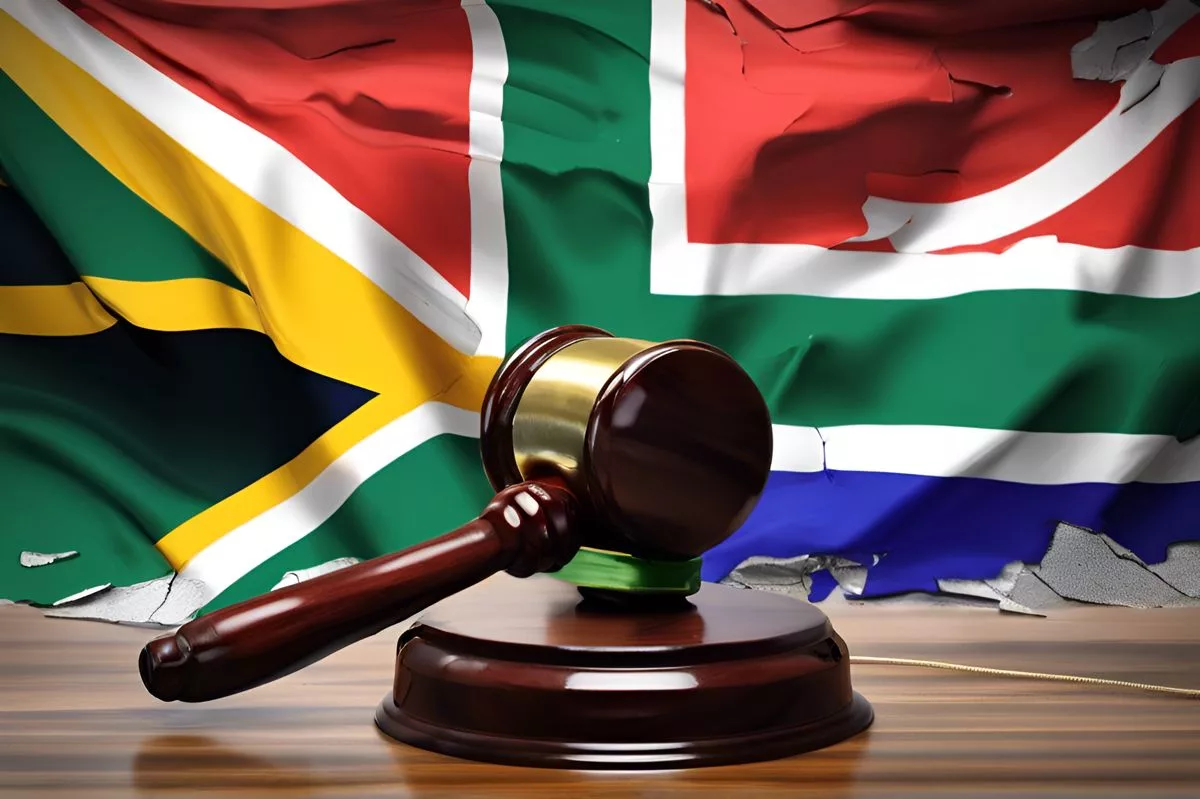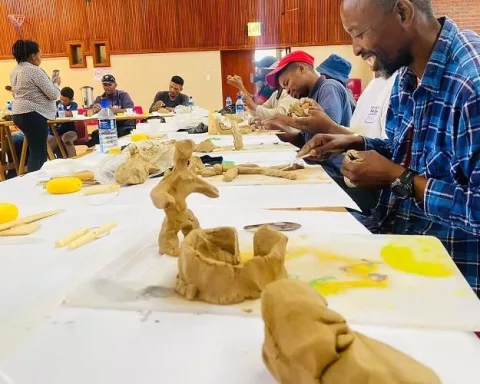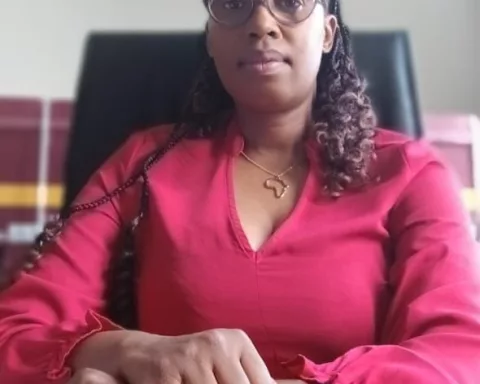The ongoing legal battle relates to Luyanda Botha’s alleged 2014 attempted rape case, which resurfaced after his conviction for the murder of Uyinene Mrwetyana in 2019. Botha’s defense attorney seeks discharge under Section 174 of the Criminal Procedure Act, claiming ‘no evidence’ linking his client to the 2014 incident, while the National Prosecuting Authority is expected to put up a strong opposition. The case highlights the critical need to address violence against women and the ongoing fight for justice.
What is the ongoing legal battle related to Luyanda Botha’s case about?
The ongoing legal battle is related to Luyanda Botha’s alleged 2014 attempted rape case, which resurfaced after his conviction for the brutal murder of Uyinene Mrwetyana in 2019. Botha’s defense attorney seeks discharge under Section 174 of the Criminal Procedure Act, claiming ‘no evidence’ linking his client to the 2014 incident. The National Prosecuting Authority is expected to put up a strong opposition when the court reconvenes on 8 July 2024.
Section 1: The Unending Ripple Effect of Uyinene Mrwetyana’s Tragedy
The brutal violation and subsequent murder of Uyinene Mrwetyana, a student at the University of Cape Town, by Luyanda Botha in 2019, continue to ripple through society. This appalling incident, which resulted in a lifetime conviction for Botha, sparked a nationwide uproar in South Africa and ignited the formation of the #AmINext movement. The case’s aftermath continues to unravel in the judicial domain, shedding light on a new, albeit associated, chapter: an earlier rape attempt by Botha in 2014.
Section 2: Recounting the Past: Luyanda Botha’s Alleged 2014 Attempted Rape
Before the heinous act that terminated Mrwetyana’s life, Botha found himself embroiled in an attempted rape case involving a young nursing student aged 21. The court proceedings resumed in the Wynberg Magistrate’s Court, featuring a witness testimony from Abongile Ntulo, a former nursing student from the same college as the young lady involved. His emotional recount painted a grim account of a young woman fleeing from Botha, petrified by his intentions. He described the victim as being visibly upset, sobbing, gasping for breath, with only a towel to cover her. She also had blood in her mouth, indicating a violent encounter.
Further court proceedings exposed Botha’s alleged act of keeping the complainant captive for hours until she managed to break free. This alarming narrative bears a striking resemblance to the conditions surrounding Mrwetyana’s case, casting a dark shadow over Botha’s past.
Section 3: The Legal Battle Continues: Botha’s Lawyer Seeks Discharge
Following Ntulo’s testimony, the State brought its case to a close. However, the legal skirmish is far from over. Botha’s defense attorney, Kyle Petersen, notified the court of his plan to file a discharge application for Botha, citing ‘no evidence’ linking his client to the 2014 incident. The proposed application falls under Section 174 of the Criminal Procedure Act, which permits a discharge if the court deems the prosecution’s evidence inadequate for conviction.
Contrarily, Eric Ntabazalila, the National Prosecuting Authority’s (NPA) Western Cape spokesperson, takes issue with this line of defense. He reassured that Botha’s lawyer’s planned Section 174 application would face strong opposition when the court reconvenes on 8 July 2024. According to him, there is sufficient evidence for the accused to answer. This pronouncement lays the groundwork for a fervid legal battle, with Botha putting up a vigorous defense against the attempted rape allegations.
Section 4: The Undeniable Impact and Everlasting Echoes of the #AmINext Movement
The 2019 murder case against Botha profoundly affected South Africa, inciting enraged protestors to march to the Parliament demanding a cessation of violence against women. The #AmINext movement, catalyzed by Mrwetyana’s murder, has played a crucial role in magnifying these calls, underscoring the pressing need for reform. As the legal proceedings regarding Botha’s alleged 2014 attempted rape case unfold, the #AmINext movement’s echoes serve as a potent reminder of the importance of justice and the continuous struggle against gender-based violence.
Section 5: The Critical Need to Address Violence against Women
These occurrences serve as a stark reminder of the urgent need to tackle violence against women, from the judiciary to the broader society. As we track the progress of Botha’s attempted rape case, it’s clear that the battle against gender-based violence and the quest for justice remain ongoing.
1. What is the ongoing legal battle related to Luyanda Botha’s case about?
The ongoing legal battle is related to Luyanda Botha’s alleged 2014 attempted rape case, which resurfaced after his conviction for the brutal murder of Uyinene Mrwetyana in 2019. Botha’s defense attorney seeks discharge under Section 174 of the Criminal Procedure Act, claiming ‘no evidence’ linking his client to the 2014 incident. The National Prosecuting Authority is expected to put up a strong opposition when the court reconvenes on 8 July 2024.
2. Who was Uyinene Mrwetyana, and what was the impact of her case?
Uyinene Mrwetyana was a student at the University of Cape Town who was brutally violated and subsequently murdered by Luyanda Botha in 2019. Her case sparked a nationwide uproar in South Africa and ignited the formation of the #AmINext movement. The aftermath of her case continues to unravel in the judicial domain, shedding light on a new, albeit associated, chapter: an earlier rape attempt by Botha in 2014.
3. What is Section 174 of the Criminal Procedure Act, and how is it being used in Botha’s defense?
Section 174 of the Criminal Procedure Act permits a discharge if the court deems the prosecution’s evidence inadequate for conviction. Botha’s defense attorney, Kyle Petersen, plans to file a discharge application for Botha under this section, citing ‘no evidence’ linking his client to the 2014 attempted rape case. However, the National Prosecuting Authority is expected to put up a strong opposition when the court reconvenes on 8 July 2024.
4. What impact did the #AmINext movement have on South Africa?
The #AmINext movement was catalyzed by Uyinene Mrwetyana’s murder and has played a crucial role in magnifying calls to end violence against women and reform the justice system. The movement incited enraged protestors to march to the Parliament, demanding a cessation of violence against women. As the legal proceedings regarding Botha’s alleged 2014 attempted rape case unfold, the #AmINext movement’s echoes serve as a potent reminder of the importance of justice and the continuous struggle against gender-based violence.
5. Why is it critical to address violence against women?
The ongoing legal battle of Luyanda Botha’s case highlights the critical need to address violence against women, from the judiciary to the broader society. The battle against gender-based violence and the quest for justice remains ongoing, and it is essential to tackle the issue urgently to ensure the safety and protection of women.
6. What is the significance of Botha’s alleged 2014 attempted rape case and its connection to Uyinene Mrwetyana’s murder case?
Botha’s alleged 2014 attempted rape case is significant as it sheds light on his past behavior and the potential for a pattern of violence against women. The connection to Uyinene Mrwetyana’s murder case highlights the crucial need to address violence against women and the ongoing fight for justice. The legal battle regarding Botha’s alleged 2014 attempted rape case brings the issue to the forefront and emphasizes the need for change to ensure the safety and protection of women.












